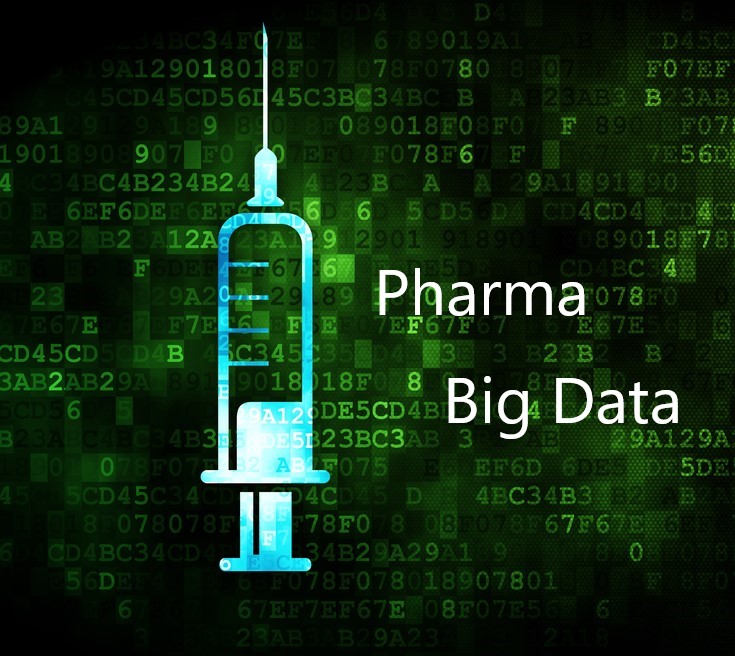 When the rise of generics shortened the timeline for making proprietary sales of new drugs, pharma realized the need to transition from the core competency of research to marketing. The promotion of their products would be necessary to achieve the sought-after ROI in the future. Now, another shift is required to maintain competitiveness and be profitable because the advantage belongs to the company who can analyze data and determine a meaningful connection the fastest.
When the rise of generics shortened the timeline for making proprietary sales of new drugs, pharma realized the need to transition from the core competency of research to marketing. The promotion of their products would be necessary to achieve the sought-after ROI in the future. Now, another shift is required to maintain competitiveness and be profitable because the advantage belongs to the company who can analyze data and determine a meaningful connection the fastest.
“When it comes to investing in big data, probably, no other industry has as much at stake as pharmaceutics. Big data not only provides the foundation for research and the discovery of new drugs but also helps patients and caregivers make better decisions. Predictive data modeling combined with rich data visualization can substantially decrease the expenses on drug discovery and facilitate decision-making in the pharmaceutical industry and healthcare in general,” suggests Inga Shugalo, Healthcare Industry Analyst at Itransition.
Some experts lament that pharma seems to be taking its time warming up to the possibilities of big data. Scott Evangelista, principal at Deloitte Consulting, notes one reason for the seeming hesitation. “They’ve been flush with cash… The more profitable companies are, the less they look for the pennies and the minor tweaks and twists that would boost efficiency and return on investment.”
Ask precisely how reluctant pharma is to incorporate big data into its R & D processes, and you will get a myriad of answers. David Shaywitz’s study of this very topic has led him to see the issue from both sides. “Pharma, I am constantly told by colleagues in Silicon Valley, needs to acquire a ‘data science mindset.’ Yet the entire business of drug discovery and development is deeply rooted in data, in science, and in evidence.”
He understands the hackles raised on both sides of the debate as barbs get batted back and forth. He notes the incredibly complex nature of biology and the intense pressures on pharma to discover the next great product and the reality that a vast majority of candidate molecules never make it.
Consider findings noted by Master’s in Data Science, that it takes approximately 7-10 years and an average cost of $500 million to develop each new drug. Also noted are findings by Ingrid Torjesen that, “For every 25,000 compounds that start in the laboratory, 25 are tested in humans, 5 make it to market, and just one recoups the investment.”
Shaywitz deduces: “Biopharma urgently needs to find ways to discover and develop new medicines better, faster, and cheaper. And there are thoughtful data scientists with deep expertise who truly believe technology could profoundly help the process and accelerate the delivery of impactful medicines for patients.”
To be sure, the pharmaceutical industry is no stranger to big numbers, whether it be big profits, big losses, or big data sets. “There’s no lack of data — it just needs to be brought together,” states Lawrence Ganti
What Can Big Data Do Specifically for Pharmaceuticals?
In short, lower costs. This considerable advantage would allow pharmaceutical companies to pursue further those medicines, which treat conditions whose lesser demand status dictates a poor investment.
Shugalo concludes, “Whether it’s an application for precision medicine, decreasing the failure rates in drug trials, or lowering the cost of research and developing better medicine, big data has a bright future for the pharmaceutical industry. The ability for researchers all over the world to contribute their own data sets to huge projects is also key. For better and worse, humans are creating more and more data every day, which means that as time goes on, these projects will gather more insights, leading to better and greater applications in the field of medicine for everyone. It will be exciting to see what the future will bring.”
Exciting indeed. RomAnalytics is prepared to meet the staffing needs of the pharma industry with our pool of qualified candidates. We will utilize our experience and relationships to deliver quicker, more precise, and satisfying job placements. Contact our team today!




